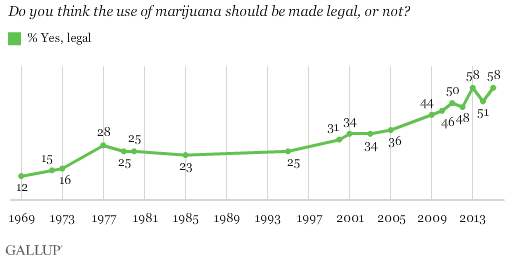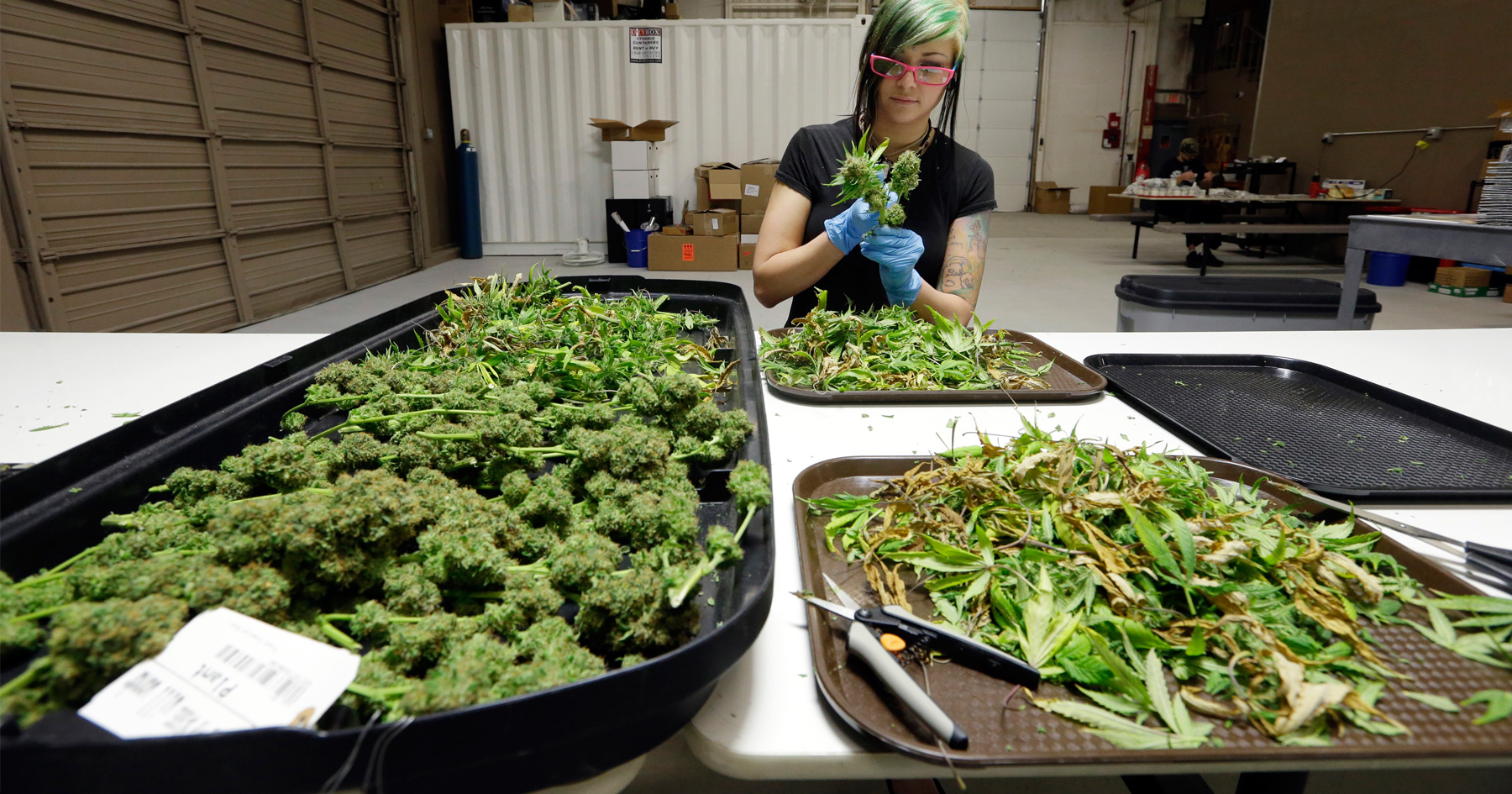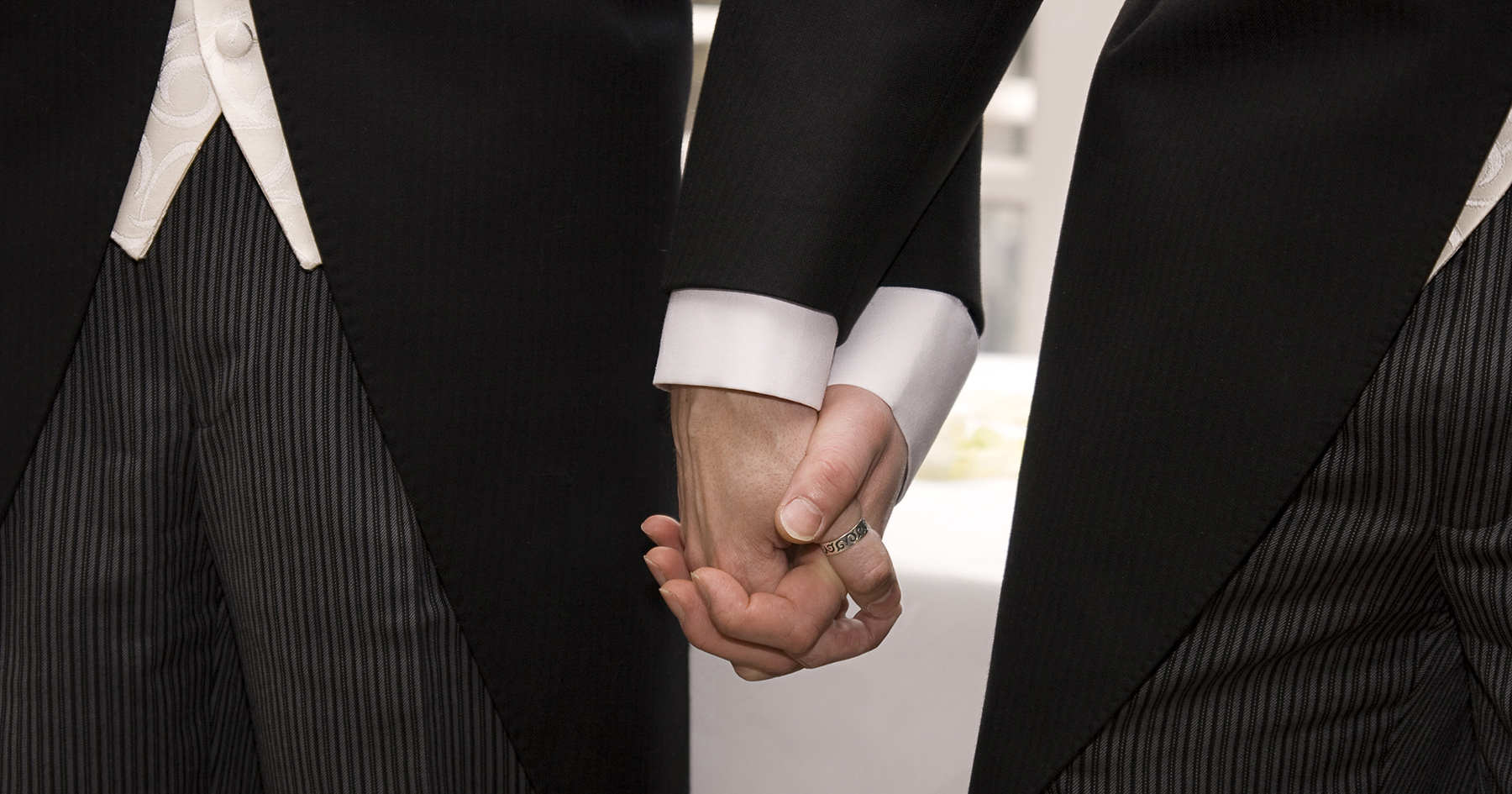Is Marijuana The 'New Same-Sex Marriage'?
By:
People are paying a lot of attention to Ohio's vote on whether or not to legalize the sale of recreational marijuana Tuesday—and not just because former 98 Degrees singer and reality star Nick Lachey stands to make huge amounts of money if it passes.
RELATED: Many Eyes Are Focusing on Ohio's Marijuana Vote
Marijuana is receiving unprecedented levels of attention this election cycle, and more broadly as a public policy issue. In some circles, it's even being compared to marriage equality law reform as the next big legal hurdle to bring the country out of the dark ages.
Ohio could become the fifth state to legalize the sale of cultivated recreational marijuana if voters there secure enough support, and the first to bring in a recreational framework without first having a medical one. A passage in the battleground state could also influence the national conversation surrounding legalization in the run-up to the 2016 election, since pot has both become a major campaign issue for candidates from both parties.
RELATED: Marijuana Could Change the 2016 Election
A Gallup poll last month was the latest to showcase just how popular legalization is for Americans:
 Gallup - gallup.com
Gallup - gallup.com
Why people are comparing marijuana to same-sex marriage
 AP/Elaine Thompson - apimages.com
AP/Elaine Thompson - apimages.com
The poll shows that a majority of Americans, 58 percent, support marijuana legalization, which is just about the amount of support same-sex marriage had around the time of its legalization in June. Legally, marijuana and same-sex marriage aren't exactly the same when it comes to legal recognition.
As Al Jazeera's Malcom Harris noted in April—shortly before the U.S. Supreme Court ruled in favor of marriage equality nationwide—federal enforcement of marijuana overshadows a smoker's rights in states where medical or recreational use has been made legal. And unlike same-sex marriage, where couples could argue for recognition of an out-of-state license in their home state, users of recreational and medical cannabis can only do so within state bounds.
RELATED: These 17 States Could Have Legalized Marijuana
But the comparison between the two historic legal challenges is more a symbolic one, underscored by deep-rooted socio-cultural shifts.

When the Supreme Court recognized the right of same-sex couples across the country to marry, it reversed decades of layered, state-sponsored discrimination. And as more and more states move to legalize marijuana use, they not only open up lucrative markets (as same-sex marriage also did), but they take steps to roll back entrenched patterns of discriminatory targeting by law enforcement, and a bloated and harmful criminal justice system.
Like with same-sex marriage, the question of widespread legalization for marijuana now seems to be when, not if.
